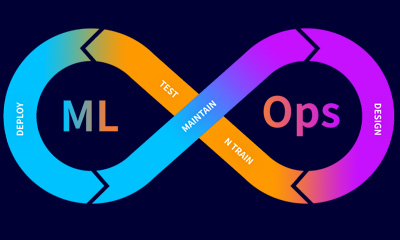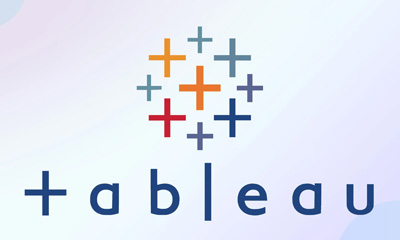Generative AI
This comprehensive Generative AI course is designed to empower participants with the knowledge and skills to harness the power of artificial creativity. By the end of this course, participants will be proficient in developing and deploying generative models across various domains such as text.
Course Rating :
4.8 (926)

Course Overview
This comprehensive Generative AI course is designed to empower participants with the knowledge and skills to harness the power of artificial creativity. By the end of this course, participants will be proficient in developing and deploying generative models across various domains such as text, images, audio, and more. This course covers the fundamental concepts, techniques, and tools necessary to build, train, and apply generative AI models effectively.
Key Points
Introduction to Generative AI:
- Understanding generative AI and its significance
- Overview of different types of generative models
Generative Models:
- Basics of generative models
- Overview of different generative model architectures (VAEs, GANs, Transformers, etc.)
Deep Learning Fundamentals:
- Neural networks and deep learning basics
- Key deep learning frameworks (TensorFlow, PyTorch)
Variational Autoencoders (VAEs):
- Introduction to VAEs
- Building and training VAEs
- Applications of VAEs
Generative Adversarial Networks (GANs):
- Introduction to GANs
- Building and training GANs
- Applications of GANs
Transformers and Attention Mechanisms:
- Introduction to Transformers
- Understanding attention mechanisms
- Building and training Transformer models
Text Generation:
- Techniques for generating text
- Building and deploying text generation models (GPT-3, BERT, etc.)
Image Generation:
- Techniques for generating images
- Building and deploying image generation models (DCGAN, StyleGAN, etc.)
Audio and Music Generation:
- Techniques for generating audio and music
- Building and deploying audio generation models
Ethics and Considerations in Generative AI:
- Ethical implications of generative AI
- Bias and fairness in generative models
- Ensuring responsible use of generative AI
Tools and Platforms:
- Overview of tools and platforms for generative AI (TensorFlow, PyTorch, Hugging Face, etc.)
- Cloud platforms for generative AI (AWS, Google Cloud, Azure)
Real-world Applications and Case Studies:
- Industry applications of generative AI
- Analysis of successful generative AI projects
Course Curriculum
What is Generative AI?
- Definition and significance
- Historical background and evolution
Types of Generative AI Models
- Variational Autoencoders (VAEs)
- Generative Adversarial Networks (GANs)
- Transformers
Applications of Generative AI
- Text generation
- Image synthesis
- Audio and music generation
- Other innovative uses
Introduction to Artificial Intelligence
- Understanding AI and its subfields
- Difference between AI, ML, and Deep Learning
Basics of Machine Learning
- Supervised vs. Unsupervised Learning
- Common algorithms and their applications
Getting Started with Python
- Python basics: Data types, control structures, functions
- Python libraries for ML: NumPy, pandas, scikit-learn
Introduction to Neural Networks
- Structure and function of neural networks
- Activation functions, loss functions, and optimization
Deep Learning Frameworks
- Overview of TensorFlow and PyTorch
- Setting up the development environment
Building Neural Networks
- Creating and training simple neural networks
- Evaluating model performance
Understanding VAEs
- Basic concepts and architecture
- Differences between VAEs and traditional autoencoders
Building VAEs
- Implementing VAEs with TensorFlow/PyTorch
- Training and evaluating VAEs
Applications of VAEs
- Image reconstruction
- Anomaly detection
Introduction to GANs
- Concept of adversarial training
- Architecture of GANs: Generator and Discriminator
Implementing GANs
- Building and training GANs with TensorFlow/PyTorch
- Techniques to stabilize GAN training
Advanced GAN Variants
- DCGAN, StyleGAN, CycleGAN
- Use cases and applications
Understanding Transformers
- Concept of self-attention
- Transformer architecture
Implementing Transformers
- Building and training Transformers for NLP tasks
- Overview of popular Transformer models: BERT, GPT
Applications of Transformers
- Text generation
- Language translation
- Text summarization
Techniques for Text Generation
- Markov Chains
- Recurrent Neural Networks (RNNs)
- Long Short-Term Memory (LSTM) networks
Implementing Text Generation Models
- Building models with RNNs and LSTMs
- Fine-tuning pre-trained models like GPT-3
Applications of Text Generation
- Chatbots
- Creative writing
- Code generation
Techniques for Image Generation
- Convolutional Neural Networks (CNNs)
- Deep Convolutional GANs (DCGANs)
Implementing Image Generation Models
- Building models with CNNs and DCGANs
- Fine-tuning pre-trained models like StyleGAN
Applications of Image Generation
- Art creation
- Image editing
- Synthetic data generation
Techniques for Audio Generation
- WaveNet
- Recurrent Neural Networks for audio
Implementing Audio Generation Models
- Building models for speech synthesis
- Music composition with neural networks
Applications of Audio Generation
- Voice assistants
- Music production
- Sound design
Overview of Tools and Platforms
- TensorFlow, PyTorch, Hugging Face
- OpenAI’s GPT-3, DeepMind’s AlphaFold
Cloud Platforms for Generative AI
- AWS SageMaker
- Google Cloud AI Platform
- Azure Machine Learning
Integrating Tools with Cloud Platforms
- Deploying models on cloud
- Scaling generative AI applications
Ethical Implications of Generative AI
- Bias and fairness
- Deepfakes and misinformation
Ensuring Responsible Use
- Guidelines for ethical AI development
- Regulatory and compliance considerations
Case Studies and Best Practices
- Analyzing real-world implications
- Implementing ethical AI policies
Industry Applications of Generative AI
- Healthcare, finance, entertainment, and more
- Case studies of successful implementations
Capstone Project
- Defining a real-world project
- Building, deploying, and showcasing a generative AI model
Advanced Generative AI Techniques
- Federated learning
- Transfer learning in generative models
Future Trends in Generative AI
- Emerging technologies
- Predictions for the future of generative AI
Preparing for Continued Learning
- Resources for ongoing education
- Building a professional network
Final Review and Certification
- Course recap and key takeaways
- Certification exam and project presentation
- Awarding of certificate of completion
- Networking and community building opportunities
Learning Outcome
By the end of this course, participants will be able to:
- Understand the principles and importance of generative AI.
- Build and manage various types of generative models (VAEs, GANs, Transformers).
- Implement generative AI techniques for text, image, and audio generation.
- Utilize popular deep learning frameworks and tools to develop generative models.
- Apply ethical considerations to ensure responsible use of generative AI.
- Deploy generative AI models on cloud platforms and understand their real-world applications.
Who this course is for?
Data Scientists: Looking to expand their expertise into generative AI.
Machine Learning Engineers: Seeking to enhance their knowledge of generative models and their applications.
Software Developers: Interested in integrating generative AI into their projects.
AI Enthusiasts: Wishing to learn about the cutting-edge field of generative AI.
Researchers: Exploring the potential of generative AI in various domains.
Artists and Creatives: Looking to leverage AI for creative applications.
FAQs
A basic understanding of machine learning concepts and some experience with Python programming are recommended.
The course is designed to be completed in 10 weeks, with a commitment of 4-6 hours per week.
Yes, the course includes practical labs and projects to apply the concepts learned in real-world scenarios.
You will need a computer with internet access. All necessary software and tools will be provided or available for free online.
Yes, you will have lifetime access to the course materials, including video lectures, slides, and code examples.
Participants will have access to discussion forums, live Q&A sessions, and direct support from instructors.
Yes, there will be a final project that requires participants to build and deploy a generative AI model using the techniques covered in the course.
We offer a 14-day money-back guarantee if you are not satisfied with the course.
Yes, we offer discounts for groups and corporate teams. Please contact us for more details.
Certifications
DeepLearning.AI Generative Adversarial Networks (GANs) Specialization
Description: This specialization on Coursera, created by DeepLearning.AI, focuses on Generative Adversarial Networks (GANs), one of the most popular and powerful generative models.
Key Topics:
- Basics of GANs
- Building and training GANs
- Advanced GAN techniques and applications
Preparation Resources:
- Online courses and hands-on projects
Certification Link:
IBM AI Engineering Professional Certificate
Description: This professional certificate on Coursera covers various AI and ML techniques, including Generative AI. It is designed to provide practical skills and knowledge.
Key Topics:
- Machine learning algorithms
- Deep learning techniques
- Introduction to GANs and VAEs
Preparation Resources:
- Online courses, hands-on labs, and projects
Certification Link:
TensorFlow Developer Certificate
Description: While not specific to Generative AI, this certification validates your proficiency in using TensorFlow to build and deploy ML models, including generative models.
Key Topics:
- TensorFlow basics
- Building neural networks
- Implementing generative models like GANs and VAEs
Preparation Resources:
- TensorFlow tutorials, practice exams, and projects
Certification Link:
- TensorFlow Developer Certificate
Udacity Nanodegree Program: Deep Learning
Description: This Nanodegree program provides in-depth knowledge and skills in deep learning, including modules on generative models.
Key Topics:
- Neural networks and deep learning
- GANs and VAEs
- Implementing generative models
Preparation Resources:
- Online courses, hands-on projects, and mentor support
Certification Link:
- Udacity Nanodegree Program: Deep Learning
Microsoft Certified: Azure AI Engineer Associate
Description: This certification validates your skills in using Azure’s cloud services to build and deploy AI solutions, including generative AI models.
Key Topics:
- AI solution design
- Implementing and monitoring AI solutions
- Managing and deploying AI models on Azure
Preparation Resources:
- Azure AI Engineer Associate Learning Path, practice exams, and study materials
Certification Link:
Google Cloud Professional Machine Learning Engineer
Description: This certification demonstrates proficiency in designing, building, and productionizing ML models on Google Cloud, including generative AI techniques.
Key Topics:
- Designing ML models
- Automating and orchestrating ML pipelines
- Deploying and monitoring ML models
Preparation Resources:
- Google Cloud Professional Machine Learning Engineer Training, practice exams, and study guides
Certification Link:
- Google Cloud Professional Machine Learning Engineer
Certified Artificial Intelligence Practitioner (CAIP)
Description: Offered by CertNexus, this certification covers a broad range of AI topics, including generative AI techniques.
Key Topics:
- AI fundamentals
- Machine learning and deep learning
- Implementing and deploying AI solutions
Preparation Resources:
- CAIP training programs, practice exams, and study materials
Certification Link:
- Certified Artificial Intelligence Practitioner (CAIP)
Coursera Specialization: Deep Learning by Andrew Ng
Description: This specialization, taught by Andrew Ng, covers various deep learning techniques, including generative models like GANs and VAEs.
Key Topics:
- Neural networks and deep learning
- Sequence models
- Generative models
Preparation Resources:
- Online courses, hands-on projects, and assignments
Certification Link:
These certifications will help you validate your skills in generative AI, making you more attractive to employers and better equipped to handle the complexities of building and deploying generative models in various applications.
Enroll Free Demo Class
Have Any Questions ?
- 521 Dyson Rd HainesCity FL 33844
- info@rbcloudgenx.com
- +1 8043007153
Prerequisites
- Lorem ipsum dolor sit adipiscing elit.
- Lorem ipsum dolor sit adipiscing elit.
- Lorem ipsum dolor sit adipiscing elit.
- Lorem ipsum dolor sit adipiscing elit.
Our Other Courses
This comprehensive MLOps course is designed to bridge the gap between data science and operations. By the end of this course, participants..
Data Science is an interdisciplinary field that combines statistical analysis, machine learning, and domain expertise to extract insights from data.
This comprehensive Power BI course is designed to equip learners with the skills and knowledge to transform data into actionable insights.
This comprehensive Tableau course covers both Tableau Desktop and Tableau Server, providing participants with the skills to visualize.
Rate This Course !
Click on a star to rate it!
Average rating 0 / 5. Vote count: 0
No votes so far! Be the first to rate this post.





